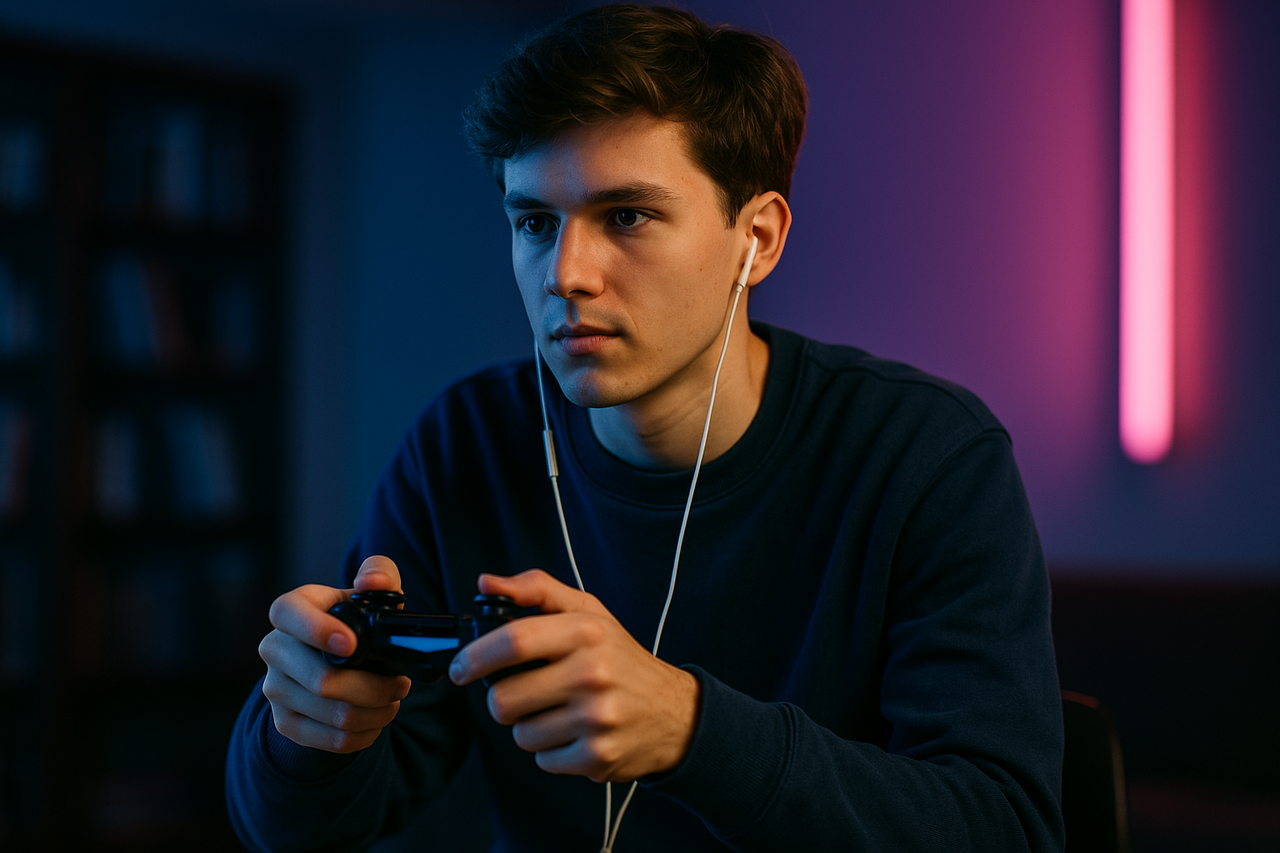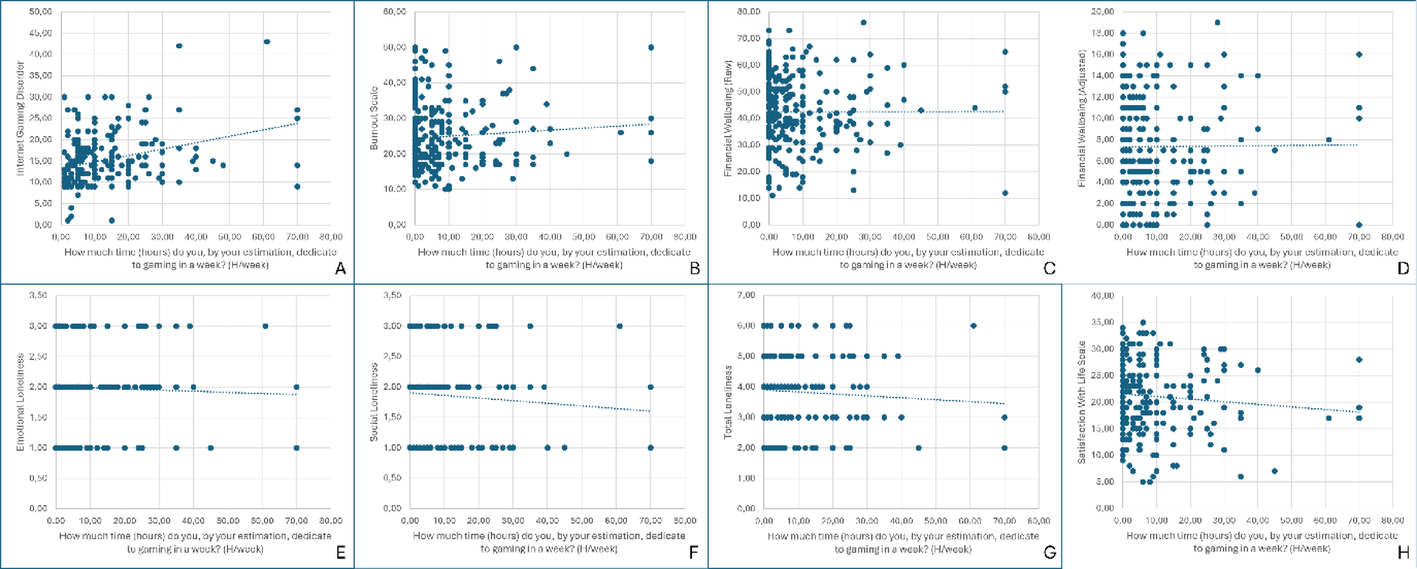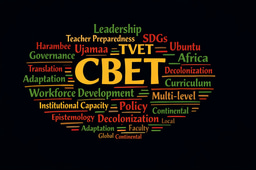Religiosity Weakens Gaming Disorder Risk
Published in General & Internal Medicine and Behavioural Sciences & Psychology

Study overview
This work explores how weekly gaming duration relate to mental health outcomes in young university students in Georgia. We assessed gaming hours alongside IGD severity, burnout, loneliness, life satisfaction, financial wellbeing, and self-reported religiosity.
Although overall gaming time in our sample was modest (mean ≈ 8 hours/week), increased gaming hours were associated with higher IGD severity. Male students demonstrated significantly higher IGD scores than female students.
A protective role of religiosity
One of the central findings is that religiosity may act as a protective factor. Students with higher religiosity reported lower IGD severity, and religiosity moderated the relationship between gaming hours and IGD symptoms. This suggests that cultural and psychosocial resources could buffer some of the risks associated with problematic gaming behaviour.
Collaboration
The study was conducted in partnership with the RADAR Center at Ben-Gurion University of the Negev (Israel). Working with RADAR allowed us to integrate a broader cross-cultural perspective on digital behavior and mental health, and strengthened the methodological and analytical framework of the project. This collaboration highlights the importance of multidisciplinary and international teamwork in understanding emerging behavioral health challenges.
Why this matters
Most evidence on IGD originates from Western Europe, North America, and East Asia. Our data add insights from the Caucasus region, where cultural norms—including the role of faith communities—may shape coping strategies, socialization, and digital behavior. These findings offer valuable context for public health planning and student mental-health services.
Future directions
We anticipate that longitudinal and interventional research will clarify causal pathways (e.g., whether gaming intensity predicts burnout or vice-versa), and test whether community- or faith-based engagement can mitigate IGD-related harms in young adults.
We welcome discussion, replication efforts, and collaborative work—particularly comparisons across countries and cultures interested in youth mental health, digital behavior, and protective psychosocial factors.
Follow the Topic
-
Discover Mental Health

This is an international, open access journal that publishes research across the transdisciplinary field of mental health research.
Related Collections
With Collections, you can get published faster and increase your visibility.
Promoting Student Mental Wellbeing: Innovative Approaches in Higher Educational Settings
The mental health and wellbeing of students have become a priority concern in the aftermath of the COVID-19 pandemic, which significantly altered educational environments globally. The transition to hybrid learning, increased social isolation, and digital fatigue have compounded pre-existing challenges faced by university students. These stressors underscore the urgent need for systemic, preventive, and culturally adaptable strategies that foster mental resilience and emotional wellbeing.
This Collection explores preventive, digital, and culturally sensitive interventions to promote student mental wellbeing in post-pandemic educational environments. It seeks to generate global evidence and best practices that support mental health integration across school and university systems, particularly through cross-cultural and cross-sectoral approaches. Emphasis will be placed on:
• Preventive approaches that promote mental health and emotional resilience at the institutional, interpersonal, and individual levels;
• Integration of digital mental health interventions, such as mobile health applications, tele-counselling, and AI-based wellbeing platforms within educational ecosystems;
• Cross-cultural comparative studies that examine how different educational systems and cultural settings conceptualize and address student mental wellbeing;
• Equity-focused interventions targeting underserved and vulnerable student populations, including those from low- and middle-income countries (LMICs), remote regions, and marginalized communities.
By synthesizing innovations from diverse global contexts, especially those emerging in resource-constrained settings, this Collection aims to foster dialogue, inspire policy reform, and support the development of scalable, inclusive, and sustainable mental health solutions for higher educational institutions.
Keywords:students wellbeing, positive mental health, colleges, universities, higher education institutions, post-pandemic education, preventive mental health, digital interventions, innovative approaches
Publishing Model: Open Access
Deadline: Feb 28, 2026
AI and Social Media in Mental Health: Detection, Prediction, and Digital Interventions
Digital technologies and online platforms have radically reshaped how individuals express, share, and experience mental health and well-being. Social media platforms, wearable devices, and other digital traces offer an unprecedented opportunity to understand, monitor, and even intervene in mental health challenges at scale. This special issue invites interdisciplinary research that uses Artificial Intelligence (AI), Natural Language Processing (NLP), Social Media Analytics, and Multimodal Data Mining to address pressing questions in mental health research, diagnosis, and care.
This issue aims to bridge computational innovation with clinical relevance, emphasizing studies that:
• Extract meaningful mental health insights from digital data,
• Develop tools for early detection and intervention,
• Tackle algorithmic bias and ethical issues in mental health prediction,
• Foster well-being and resilience through digital technologies.
Topics of Interest (include but are not limited to):
• Mental health detection and prediction using NLP and machine learning on social media platforms and integration into clinical decision-making
• AI-powered chatbots and conversational agents for mental health support and digital therapy in clinical or counseling contexts
• Clinical case studies of AI deployment for mental health screening, diagnosis, or therapy augmentation
• Explainable and interpretable AI for mental health decision-making in clinical or digital settings
• Collaborative approaches between AI developers and healthcare providers for co-design of digital mental health tools
• Hate speech, Hope speech and emotional resilience: Combating hate speech and associative mental impact, Identifying and promoting positive discourse and support in online communities
• Multimodal analysis for mental health, including text, images, videos, and speech
• AI-powered chatbots and conversational agents for mental health support and digital therapy
• Digital phenotyping and behavioral modeling using smartphone, wearable, and app usage data
• Bias, fairness, and ethical implications of AI models used in mental health screening or diagnostics
• Detection of harmful or triggering content, misinformation, and mental health-related toxicity online
• Explainable and interpretable AI for mental health decision-making in clinical or digital settings
• Low-resource and cross-cultural approaches to digital mental health analytics, especially in the Global South
• Digital interventions and campaigns that promote mental well-being through social platforms or mobile apps
This Collection also strongly encourages contributions from clinicians, psychiatrists, psychologists, and public health professionals who utilize digital platforms in diagnostics, therapy delivery, or patient monitoring. We aim to bridge computational approaches with clinical expertise to ensure the development of AI tools that are not only technically robust but also practically deployable in real-world mental healthcare settings.
Keywords:Mental Health Informatics, Clinical Natural Language Processing (CNLP), Digital Mental Health, AI for Mental Health Prediction, Multimodal Behavioral Analysis, Digital Interventions and Therapy, Clinical Mental Health Tools, Digital Psychiatry, AI in Psychological Assessment, Behavioral Health Informatics, Patient-Centered AI
Publishing Model: Open Access
Deadline: Mar 31, 2026






Please sign in or register for FREE
If you are a registered user on Research Communities by Springer Nature, please sign in
This is very interesting and relevant paper in this decades. Gaming disorder significantly increases in the few recent years. Findings of this article may provide valuable information to prevent the risk of gaming disorder.
Thank you, the international cooperation is moving forward with gathering multicultural data and analysis. More papers to come.